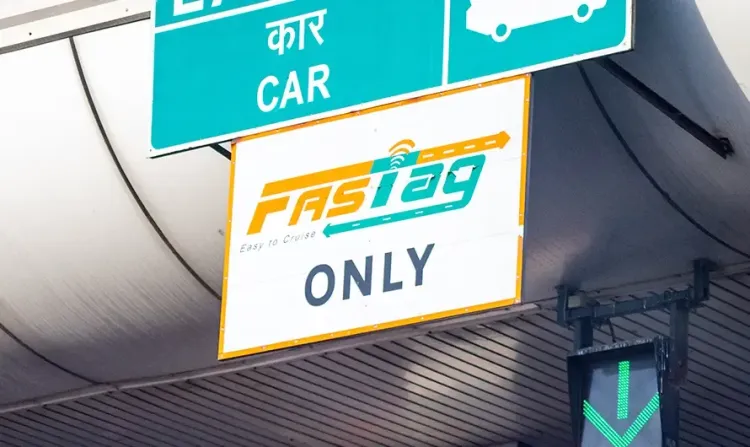Revised FASTag Regulations to Simplify Toll Payments Starting Monday

Synopsis
Key Takeaways
- New penalties for low balance and blacklisted FASTags.
- Inactive FASTag transactions will be declined.
- Users can incur extra charges for delayed transactions.
- Toll operators responsible for insufficient balance issues.
- Users should monitor their FASTag status to prevent rejections.
New Delhi, Feb 16 (NationPress) The revised FASTag regulations, which impose additional penalties on users with insufficient balance, late payments, or blacklisted tags, are set to be implemented starting Monday.
The National Payments Corporation of India (NPCI) and the Ministry of Road Transport and Highways have introduced significant modifications to the FASTag system, intending to simplify toll payments, minimize disputes, and mitigate fraud.
Beginning February 17, the updated FASTag regulations will impact users who delay their payments or possess blacklisted tags.
If a FASTag remains inactive for over 60 minutes before the vehicle passes through the toll and stays inactive for up to 10 minutes post-crossing, the transaction will be rejected.
This system will decline such payments with the message “error code 176,” with implementation set for February 17.
Additionally, there are modifications regarding the Chargeback process, cooling periods, and transaction rejection rules to enhance the toll payment experience and lessen disputes.
Under the new guidelines, FASTag users may face extra charges if their toll transactions take longer than 15 minutes from the time the vehicle passes the toll reader.
According to the updated National Electronic Toll Collection (NETC) guidelines, if a transaction is delayed due to insufficient balance in the user’s FASTag account, the toll operator will be held accountable.
However, if the amount is deducted, users have the right to contest the charge but only after a mandatory cooling period of 15 days.
Users are advised to maintain a sufficient balance in their FASTag wallet before traveling, keep track of transaction timings to identify delays in deductions, and stay updated on their FASTag status to avoid rejections due to inactivity.
As stated in the NPCI circular released on January 28, the validation of FASTag balances will now adhere to a more stringent schedule.
In the past, users were able to recharge their FASTag at the toll booth and still pass through; thus, it is essential for users to check their FASTag status ahead of time.
According to recent data from NPCI, FASTag transactions rose by 6 percent in December last year, reaching 382 million, compared to 359 million in November.
The transaction value also saw a 9 percent increase, amounting to Rs 6,642 crore in December, up from Rs 6,070 crore in November.










